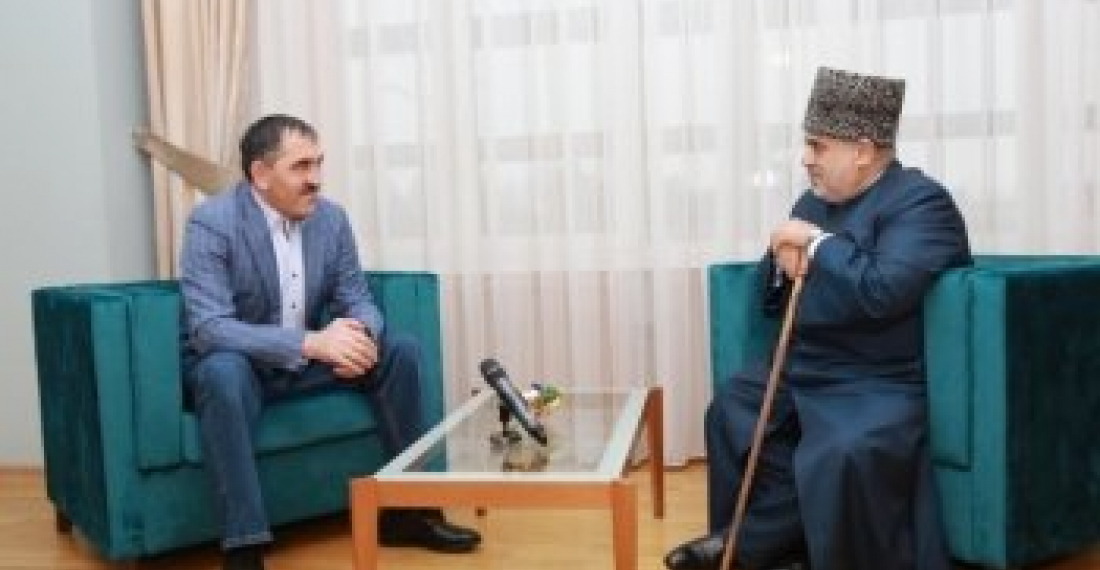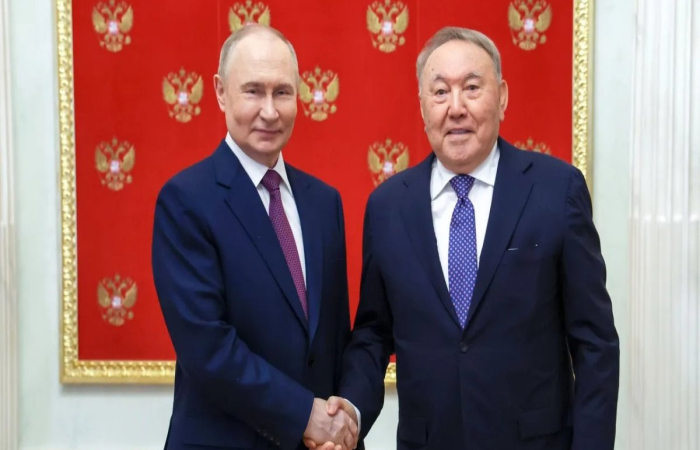The Chairman of the Caucasus Muslims Office, Sheikhulislam Allahshukur Pashazade, is currently visiting the North Caucasus.
Azerbaijan media reports that Pashazade met in Vladikafkaz with the Head of the Republic of Ingushetia, Yunus-Bek Yevkurov.
On January 26, the delegation led by Sheikh ul-Islam Allahshukur Pashazade, took part in an event organized in connection with the opening of the Mukhtarov mosque, restored in Vladikavkaz with the help of Azerbaijan. The mosque, built in 1908 by the Azerbaijani benefector Murtuza Mukhtarov, has traditional oriental architecture.
The delegation also participated in a conference held in the building of the Vladikavkaz National Scientific Library.
At the meeting, Azerbaijan MP, Gudrat Hasanguliyev, spoke about the need to develop cultural and spiritual ties between Azerbaijan and Ingushetia, as well as the importance of expanding mutual investment in the field of economy.
source: commonspace.eu
photo: The Chairman of the Caucasus Muslims Office, Sheikhulislam Allahshukur Pashazade met in Vladikafkaz with the Head of the Republic of Ingushetia, Yunus-Bek Yevkurov. (photo courtesy of Azertac News Agency, Baku)






